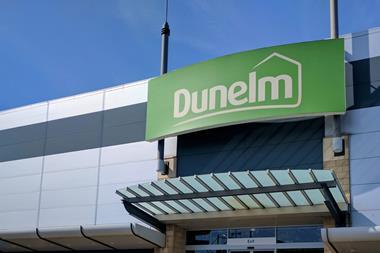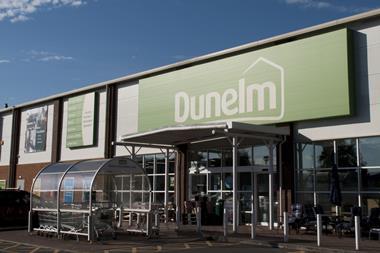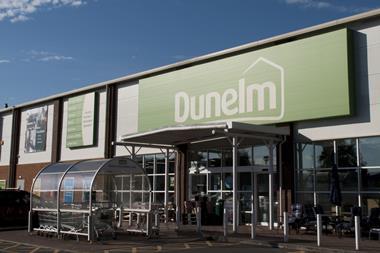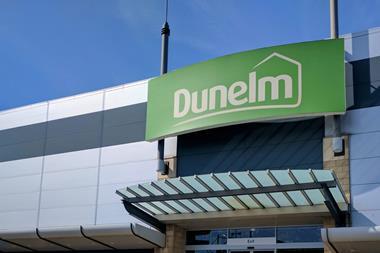From reducing energy emissions to providing greater transparency about sustainability credentials, retailers are increasingly expected to take tangible steps towards net zero. But how can retailers really move the dial and improve their future viability?
This month, Retail Week’s senior commercial content editor Megan Dunsby was joined by Dunelm head of climate change and sustainability Christina Downend and LoweConex divisional sales director Orla McGreevy to explore the retail industry’s path to progress and biggest investment priorities.
Watch the video for the full discussion and get up to speed with their four essential takeaways to inform your sustainability strategy in 2024 and beyond.
1. Stores offer major energy efficiencies – do not overlook them
With Dunelm aiming to be net zero by 2040, the retailer has been investing in reducing its emissions. Energy reduction across its property estate, in particular, is a key focus.
“Our Scope 2 emissions have been almost zero”
Christina Downend, Dunelm
Understandably so; energy generation is responsible, on average, for 20% of UK greenhouse gas emissions every year, according to Gov UK 2023 data, while the pressures on energy supply and availability are well documented by the National Grid.
With its 180-strong store network, Downend says that Dunelm’s property team have made strides in reducing the retailer’s Scope 2 emissions (indirect greenhouse gas emissions associated with the purchase of electricity, steam, heat, or cooling).
“Since about 2019 we’ve been purchasing renewable energy, so our Scope 2 emissions have been almost zero, which is fantastic, but we haven’t stopped there”, says Downend.
“Despite growth in our number of stores, our property team have kept our electricity usage at the same levels and that is because of their great work improving energy efficiency and putting solar PVs on many of our freehold roofs… In the last year, we have put solar PVs on five more sites, and we intend to do three more before the end of the year.”
LoweConex is in the business of energy efficiency. The OmniTech provider specialises in remote monitoring and control optimisation that enables retailers to reduce their energy consumption and their maintenance costs. Delivering impressive savings for retailers such as a 21% annual energy reduction. The company prides itself on continuous improvement partnerships and has worked with the likes of Dobbies Garden Centres and Charles Tyrwhitt to find new energy savings in their store networks.
McGreevy says that when it comes to energy reduction across store estates, “asset management has long been an overlooked element of store design. Over the years we have heard of the value of environmentally friendly packaging, the need for a circular approach to product lifecycles and the far-reaching consequences of unsustainable supply chains.
“Yet, until a catalyst called the energy crisis arrived, the running costs of some of the largest physical structures in a store environment were secondary in both placement and addressable footprint.”
She adds that it is a common misconception for retailers to believe that “tangible sustainability results are only found in the elements of a store you can see with your own eyes.”
2. Data is critical to sustainability ROI
Data is the holy grail for retailers and its power cannot be underestimated when it comes to measuring sustainability impact and making in-roads.
McGreevy advises retailers to combine their “asset management programmes with connected and actionable data.”
This is data that “influences purchasing decisions via asset benchmarking, eliminates energy wastage via automated and dynamic performance optimisation that is reactive to the changing nature of store environments, and enables participation in demand side management events to turn down energy consumption and increase energy availability for their local communities,” McGreevy adds.
Downend agrees. She notes that Dunelm’s sustainability activities have been “informed by the data that we’re able to use and find to make the business cases and ensure the decisions we’re making […] keep within our energy efficiency goals.”
3. Reframe the narrative around sustainability investments
Some retailers avoid prioritising sustainability due to the cost and time-intensive nature of realising progress. It is an often-debated topic about how retailers can make sustainability pay while shoring up their bottom line.
“The real expense is not found in the adoption of sustainable practices, but rather in the missed opportunities of failing to do so”
Orla McGreevy, LoweConex
In response to this, McGreevy argues it is “essential to reframe the narrative of what sustainability costs an organisation, in every sense of the word. Rather than viewing it as a mere expense or drain on resources, it should be recognised as a powerful agent of transformation.”
“Sustainable sourcing forges robust partnerships, waste minimisation leads to resource optimisation, energy efficiency translates to increased profitability for stores – and amidst it all, today’s consumers prefer to support brands that address their environmental impact,” McGreevy attests.
She emphasises: “The real expense is not found in the adoption of sustainable practices, but rather in the missed opportunities of failing to do so. Retailers must view sustainability as a strategic investment that attracts eco-conscious consumers and bolsters profitability through smarter, efficiency-driven operations.
“My advice to retailers navigating the challenging waters of a climate-cost crisis is to balance the scrutiny of new sustainability projects with an appreciation for the returns they can generate.”
4. Sustainability success is a team effort
For Dunelm, which had its green targets approved by global body SBTI (Science Based Targets Initiative) last October, getting buy-in for new sustainability investments and having cross-team support has been key to success.
Downend highlights that “over the last couple of years, Dunelm has been building a team of sustainability experts in-house.” These experts are tasked to “keep up to speed with what is best practice and to integrate that into our business as usual, to make sure everyone is working towards their goals.”
When it comes to implementing new solutions, she adds that “everyone [at Dunelm] is very much on board with our ambition of reducing emissions and energy usage.”
In the case of its roll-out of solar PVs, Downend says “not only is it the attitude of the business that they want to promote this, but the return on the investment is a lot quicker for it [than other sustainability investments].”





























No comments yet